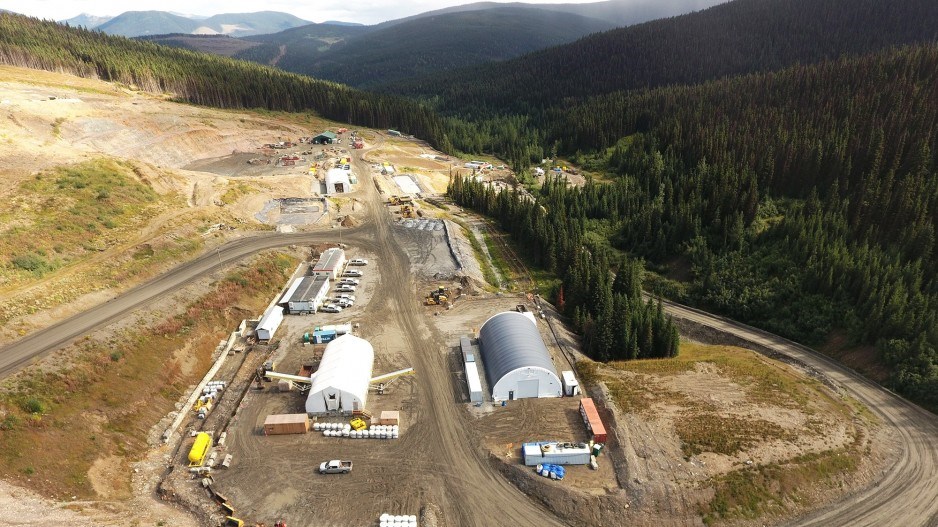A new underground gold mine just outside of Wells, B.C. has been granted an environmental certificate by provincial ministers of Environment and Energy, Mines and Low Carbon Innovation.
The B.C. government notes that Cariboo Gold mine project was the first project to be approved under the new Environmental Assessment Act, which was updated in 2018.
The mine's proponent, Osisko Development (TSX,NYSE:ODV) says the initial capital cost for Phase 1 of the project is just $137 million, but estimates a total capital spend of $1 billion for the life of the mine.
Once in operation, the mine is expected to sustain 500 permanent jobs. The Mining Association of BC estimates the annual payroll from the mine will be $53 million. The mine project includes the development of a 200-person mining camp at the mine site.
“The project will employ an average of 200 workers during construction, peaking at close to 300 workers, and will employ almost 500 during operations,” a B.C. government news release states.
Today’s decision comes with 22 conditions, including:
- a plan to minimize impacts on the local community and tourism, with a limit on the maximum allowable noise from the project, with blasting to be done only during the day, and vegetation used to screen buildings and other facilities to minimize visual impacts;
- limiting truck traffic near residential areas;
- strict policies around work camps, including to prevent gender-based violence and restricted use of tourist accommodations by workers;
- hiring 75 per cent of workers from the region;
- a strategy, developed with the District of Wells, to mitigate pressures on recreation and tourism;
- a new, clean drinking water supply for the District of Wells;
- mitigation and monitoring measures to reduce emissions and maintain air quality;
- remediation in the District of Wells and along the shore of Jack of Clubs Lake, which was contaminated by a previous mine's tailings; and
- development of a specific plan to minimize impacts to the Barkerville woodland caribou herd.
In issuing the certificate, the two ministers acknowledged the many concerns that have been raised by the nearby residents of Wells, as well as First Nations, notably the Xatśūll First Nation.
The Lhtako Dené Nation and Williams Lake First Nation provided consent for the project, but Xatśūll initially did not.
After the ministers met with the chief of the Xatśūll, the First Nation provided “an additional letter indicating that they do not oppose the project," Ministers George Heyman (Environment) and Josie Osborne (Energy and Mines) say in their Reasons for Decision.
“We are of the view that the benefits of the project outweigh the costs, and it is in the public interest,” they write.
In a recent corporate presentation, Osisko said it is aiming for first production in 2024.



